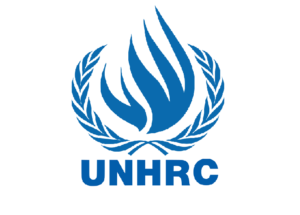Advance edited version
February 10, 2017
Report of the Office of the United Nations High Commissioner for Human Rights on Sri Lanka
OHCHR Report on Sri Lanka 10 Feb 2017
http://ap.ohchr.org/documents/dpage_e.aspx?si=A/HRC/34/20
Summary The present report assesses the progress made in the implementation of Human Rights Council resolution 30/1, on promoting reconciliation, accountability and human rights in Sri Lanka between October 2015 and January 2017. On that basis, the United Nations High Commissioner for Human Rights identifies efforts that need to be taken to achieve progress in the reconciliation and accountability agenda to which the Government of Sri Lanka has committed. The High Commissioner also advocates for the Government to continue meaningful consultations with relevant stakeholders on transitional justice and the reform agenda, and urges the Council to sustain its close engagement and monitoring of developments in Sri Lanka.
Introduction
- The present report is submitted to the Human Rights Council pursuant to Council resolution 30/1 on promoting reconciliation, accountability and human rights in Sri Lanka. It should be read in conjunction with the oral update of the United Nations High Commissioner for Human Rights to the Council of 29 June 2016 (A/HRC/32/CRP.4), the comprehensive report of the Office of the High Commissioner (OHCHR) on Sri Lanka (A/HRC/30/61)and the detailed findings of the OHCHR investigation (A/HRC/30/CRP.2).[1]
- In its resolution 30/1, the Human Rights Council took note with appreciation of the report on Sri Lanka of the High Commissioner and the findings and conclusions of the OHCHR investigation. The Council requested OHCHR to continue to assess progress in the implementation of its recommendations and other relevant processes related to reconciliation, accountability and human rights, and to present an oral update to the Council at its thirty-second session and a comprehensive report at its thirty-fourth session.
- Building on the recommendations of the reports of the High Commissioner and the OHCHR Investigation on Sri Lanka, the Human Rights Council, in its resolution 30/1, adopted by consensus, made comprehensive recommendations on the judicial and non-judicial measures necessary to advance accountability and reconciliation in Sri Lanka, and on strengthening the protection of human rights, democracy and the rule of law. The resolution represents the commitment of the Government of Sri Lanka to the international community and to its own people to confronting the past, ending impunity, ensuring justice, achieving reconciliation and preventing the recurrence of violations…
[1] English, Sinhalese and Tamil versions of the findings(also referred to unofficially as the “OISL report”) are available atwww.ohchr.org/EN/Countries/AsiaRegion/Pages/LKIndex.aspx.
Conclusions
- The High Commissioner appreciates the constructive engagement of the Government of Sri Lanka with OHCHR and United Nations human rights mechanisms since January 2015. This collaboration marks a visible change of policy direction in addressing past human rights violations. The Government has advanced on constitutional reforms and showcased some positive developments on the broader human rights agenda. The fulfilment of transitional justice commitments has, however, been worryingly slow, and the structures set up and measures taken during the period under review were inadequate to ensure real progress.
- In his oral update to the Human Rights Council in June 2016,the High Commissionerobserved that “the full promise of governance reform, transitional justice and economic revival has yet to be delivered, and risks stalling or dissipating.” A similar analysis holds truenine months hence. Party politics, including the balancing of power between the different constituencies of the coalition in the run-up to constitutional reforms, have contributed to a reluctance to address difficult issuesregarding accountability or to clearly articulate a unified position by all parts of government. Unclear and often contradictory messages have been delivered on transitional justice mechanisms by the President, the Prime Minister and various members of the Cabinet. Similar contradictions are visible in policy development. This tension was apparent both in the draft counter-terrorism legislation and on the proposed amendment to the Criminal Procedure Code. Public messaging around transitional justice and reconciliation has been generally confusing and at times contradictory.
- The commitments of the Government,welcomed by the Human Rights Council in its resolution 30/1, were also applauded by all those interested in justice and reconciliation in Sri Lanka. Eighteen months after the adoption of resolution 30/1, Sri Lanka has made some measure of elementary progress in reconciliation, in addressing the root causes of the conflict and in truth-seeking. Stronger, tangible results need to be forthcoming without further delay to prevent any further dissipation of hard-earned trust. The consultations on the reconciliation mechanisms and the representations on constitutional reform were inclusive, participatory processes, largely deserving of praise. The Government should consolidate these gains by embracing the conclusions of these processes and formulatinga reform and a transitional justice agenda that identifies a comprehensive strategy with clear andpublicly-announced benchmarks. The pace of establishing comprehensive transitional justice mechanisms has been markedly slow. Clear progress should be demonstrated on each of the pillars of the transitional justice structure.
- The importance of the role of independent commissions, and particularly of the Human Rights Commission, in strengthening reforms and cementing good governance cannot be overstated. It is therefore crucial that their mandate and autonomy be respected, that they be sufficiently resourced, they be effectively consulted and that their recommendations be duly noted and implemented.
- The High Commissioner believes that the Human Rights Council should continue to play a critical role in encouraging progress in accountability and reconciliation in Sri Lanka. As the State moves to the implementation phase of the transitional justice agenda, the High Commissioner urges the Human Rights Council to remain closely engaged with Sri Lanka to continue monitoring developments.
- In particular, the High Commissioner highlights the recommendations below, some of which he made in previous reports.
OHCHR page on Sri Lanka at http://www.ohchr.org/EN/Countries/AsiaRegion/Pages/LKIndex.aspx